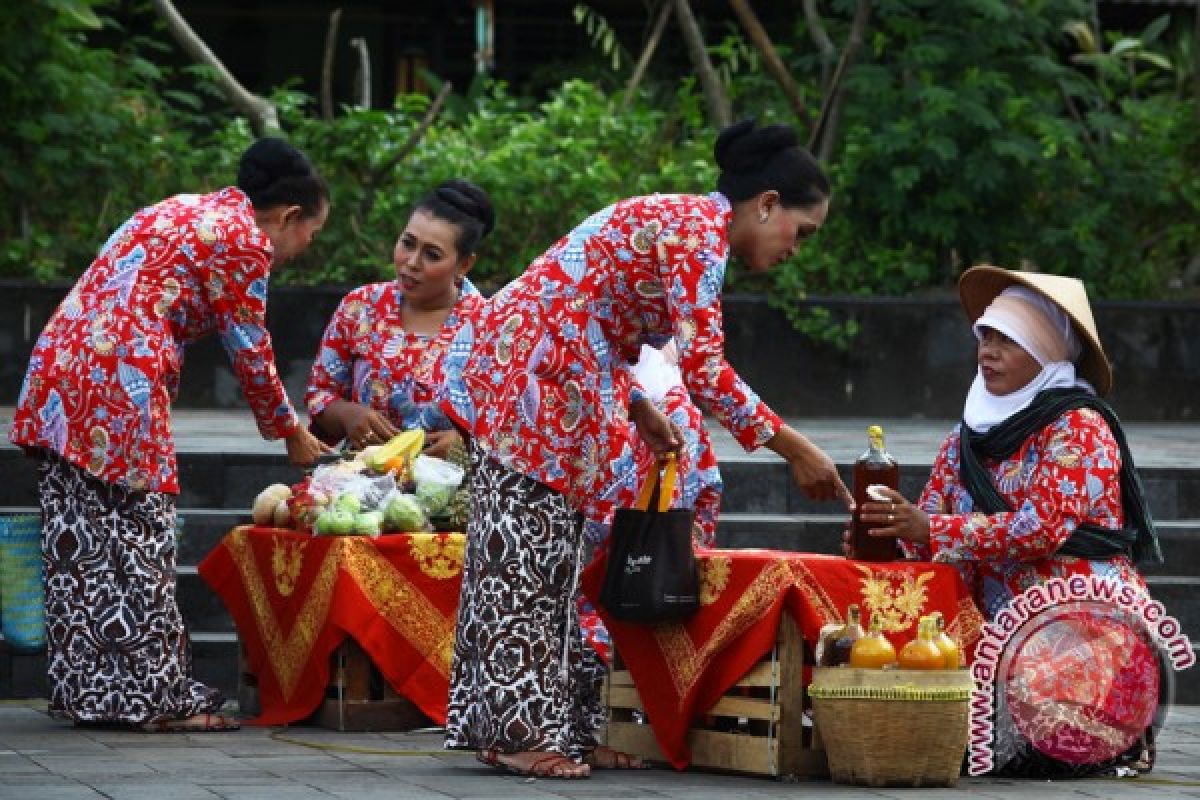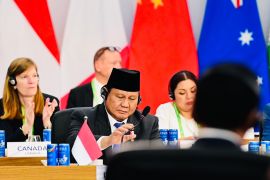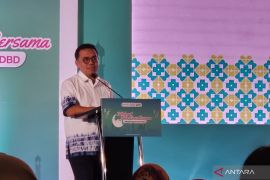Prizes in the form of shopping vouchers are expected to attract more consumers ..."Jakarta (ANTARA News) - The government has made steady efforts to ensure the survival of traditional markets and will continue to take further steps through promotion and revitalization.
Efforts have been made to revitalize the traditional markets, and the process is not limited to merely improving the physical infrastructure of the markets but also their management.
The revitalization of traditional markets will help to improve the welfare and boost the income of the traders.
In addition, offering promotional programs to lure shoppers is also necessary to help maintain the market share of traditional markets, so they do not lose out to competition from modern markets.
To maintain the existence of traditional markets in the cultural city of Yogyakarta, the local Market Management Department is again holding promotional activities this year though using a different concept than that in the previous years.
In the city with a rich historical and cultural heritage and the center of the Mataram Dynasty during the 1575-1640 period, the Market Management Department will hold promotional activities in traditional markets to mark the anniversary of the Yogyakarta city government and will continue the initiative until the anniversary of Yogyakarta city in October.
"Unlike the promotional program in 2015, this year, we will offer vouchers that can be exchanged for premium products in traditional markets," Yogyakarta Market Management Department spokesman Rudi Firdaus remarked.
During a similar promotional program held in the previous years, the consumers were offered prizes in the form of electronic gadgets and automotive products, but this year, the prizes are going to be shopping vouchers of different values.
The prizes offered in the previous years comprised water dispensers, DVD players, TVs, refrigerators, mountain bikes, electric bikes, and motorbikes.
Firdaus expressed hope that the gift vouchers will be able to increase the turnover of the merchants as consumers will go shopping at traditional markets.
"Prizes in the form of shopping vouchers are expected to attract more consumers to increase their awareness of various types of merchandise available in traditional markets," he explained.
Revitalization efforts coupled with boosting creativity and promotional programs are urgently required for the survival of traditional markets amid stiff competition, with the mushrooming of supermarkets and hypermarkets in the city, in addition to supporting the citys huge tourism potential.
The local government of Yogyakarta city will continue to improve the concept and management of traditional markets to back the tourists who visit the place for pleasure.
With several thousand-year-old temples of the ninth century by the dynasty of Syailendra, Yogyakarta also has beautiful natural panorama with green rice fields, covering the suburban areas with a background of volcanic Mount Merapi.
The city, in which the people live in peace with typical Javanese hospitality, has numerous traditional markets where the exchange of goods and services take place as a result of buyers and sellers being in contact with one another.
In the modern industrial system, however, the traditional markets in Yogyakarta will not be the places for transaction only but their concept and management will also be developed to support the tourism.
With a better concept and management, the traditional markets will function not only as the place of transaction but also of recreational fun.
The concept and management of traditional markets should at least be the same as that of malls and other shopping centers in the country.
Fauna and Ornamental Plants Market (Pasthy Market) is one of traditional markets in Yogyakarta that has developed its concept and management to become a recreational fun for tourists who will find
sincere smiles and warm greeting in every corner of the city.
At Pathy Market the visitors will not do the shopping only but they can also stroll through the market while enjoying the atmosphere and feeding their eyes with the animals and ornamental plants being sold there.
The local government has been committed to developing traditional markets into modern market level in a bid to improve the peoples economy.
Many traditional markets in Indonesia are not in very good condition but in Yogyakarta they are well maintained and good enough.
Therefore the government should continue to develop the concept and management of traditional markets to support tourism.
Yogyakarta city government really has a high commitment to improving the traditional market development.
Having been functioning as a traditional place since 1758, Beringharjo market in Yogyakarta is now offering more merchandise, ranging from batik, traditional snacks, Javanese herbs, to Buddha effigy costing hundreds thousands rupiah.
In September 2010 the World Health Organization (WHO) provided US$2,400 to support a program to improve the sanitary health infrastructure of Argosari traditional market in Gunung Kidul district, Yogyakarta.
The financial assistance was given at the time under a cooperation agreement between the Ministry of Health and WHO.
The program has a non-physical aspect, namely to change the public perception that traditional markets as disorder, untidy, and dirty, and to enable them to compete with modern markets.
Changing the the market stakeholders behavior, namely the behavior of the people selling their goods in the market, the market visitors, the market traders association and the market management is considered the best way to maintain and create healthy traditional markets.
Altering the stakeholders behavior is important to change the traditional markets image in addition to the provision of supporting facilities needed to keep the market healthy, clean, neat and pleasant to see, especially by the tourists visiting the area.
(Uu.O001/INE/KR-BSR/F001)
Reporter: Otniel Tamindael
Editor: Priyambodo RH
Copyright © ANTARA 2016












